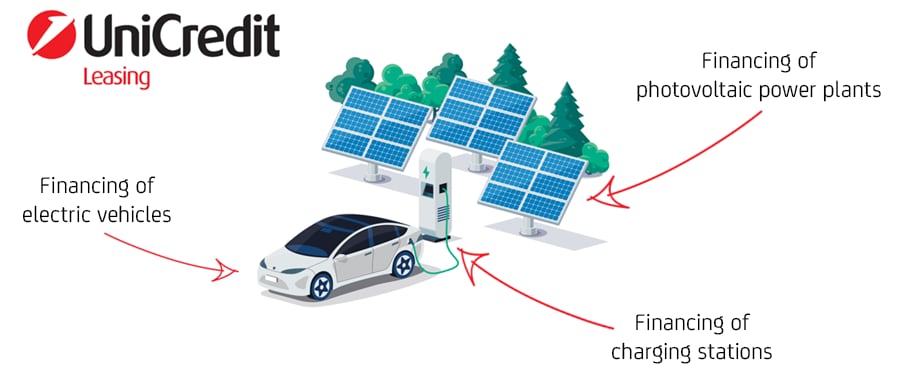
Smart Banking
UniCredit On Mobile
Keep your your accounts, cards and investments under control. Make payments and discover great deals.
At UniCredit, we support businesses on their journey towards sustainability. We offer financing for sustainable projects and provide expert advice — from an introduction to the topic and strategy setting to the assessment of ESG factors.
As part of sustainable financing, we offer both purpose-specific and non-purpose financing.
We finance environmentally sustainable and transitional activities that meet the relevant criteria under the EU Taxonomy.

We finance sustainable environmental and social objectives that are relevant to the client. The objectives must be measurable and sufficiently ambitious.

Environmental objectives
Social objectives
We support our clients in achieving their social objectives.

Areas of financing
Possibility of issuing bonds in the areas of sustainability, ecology or social issues that comply with the most recognized market standards.

Areas of financing
Sustainable finance (ESG) consulting includes explaining basic definitions, commitments and objectives in the areas of the environment, social issues and governance. This service is provided by our advisors to corporate clients.

We engage in ESG dialogue and support our clients in their transition
Benchmarking
Gap analysis
Investor engagement
Selection of a rating agency
Rating simulation
Management of the rating process
ESG product structuring
ESG product innovation
Allocation and impact reporting
Financing projects in the field of construction and operation of renewable energy sources
Photovoltaic power plants, wind farms
Providing financial services to regions, cities and municipalities
Management and evaluation of deposits, provision of loans, leasing services
Tailor-made financing for the crop and livestock production sectors
Support for sustainable agriculture
Financing major Czech university and regional hospitals
Partner in financing senior housing and follow-up care centres
Taking a step towards the future has never been easier. We are your partner for comprehensive electromobility solutions. In addition to financing electric vehicles, we also provide financing for charging stations and photovoltaic power plants.


Loading